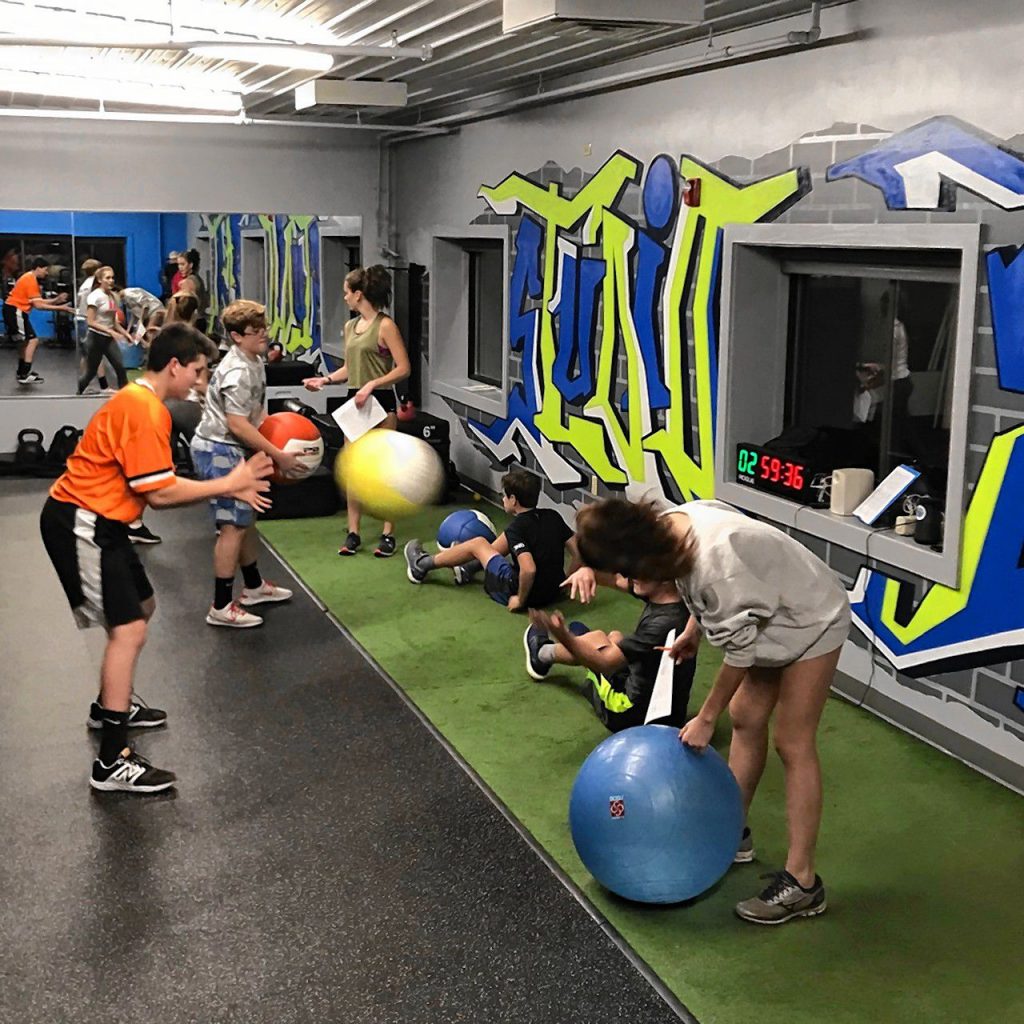I often get asked by parents, “What can I do to help my athlete stay injury-free?” My response is always the same: “Keep them strong.” Strength training, while often misunderstood and chronically miscategorized, is necessary for every athlete (and non-athlete, for that matter). Proper and appropriate strength training in season and off season is essential in reducing both the incidence and severity of injury.
The body pays the price of the cumulative effect of taking a repetitive beating on the field and on the court. Year-round strength training prepares athletes to play at their best and longer into the season. A comprehensive program coached by an experienced and educated fitness professional can train the body to be more resilient to the stresses and impact forces experienced in athletic activities.
Due to the mechanics of the human body and the compromising positions required to play at a high level, sports-related injuries are inevitable. However, there are ways to help prevent a majority of them. I enlisted the help of orthopaedic surgeon and long-time coach Dr. Sean O’Connor to help explain steps we can take to prevent some of these injuries. Here is his sage advice.
1. Play more than one sport! If you’re going to specialize, do it after high school.
2. Develop good mechanics and techniques, either for running, throwing or changing direction.
3. Work on flexibility.
4. Work on strength, especially core, in the offseason.
5. Rest! Build a complete offseason into your year. Do a sport completely different from your “primary” sport. Find time to recover so you don’t burn out.
With the end of school fast approaching, so comes the end of sports season. If you are not playing summer league, rec, travel team or attending camp, I implore you to do some offseason training. One of the most influential statements that has stuck with me throughout my career is, “There is no such thing as maintain. You’re either getting stronger or getting weaker.”
To help me convince you of the importance, I asked Dr. O’Connor his thoughts on the subject. How important is offseason training?
“Offseason training is incredibly important. Many athletes don’t have time for in-season agility and strength training, especially in high school. ACL injury prevention programs, in particular, are incredibly helpful, especially since few coaches incorporate this type of training into routine practices.”
As a senior partner specializing in sports medicine, he has seen his fair share of injuries. He says the most common sports-related injuries he sees in his office are:
Lower-extremity ligament injuries (ACL, MCL, patellofemoral dislocations and ankle sprains)
Elbow and shoulder sprains in throwing athletes, and shoulder dislocations
Since 1988, Dr. O’Connor has been working at Concord Orthopaedics and has encountered innumerable injuries that could have been prevented. “The risk of ankle and knee injuries can definitely be reduced by proper training, possibly by 50% or more,” he said. “Whether or not we can reduce the incidence of shoulder dislocation is not as clear, but strengthening probably can help. Throwing injuries could probably be completely eliminated by appropriate training and age-specific activity limitations, like pitch counts.”
Athletes want to be feeling and playing their best when it matters the most. Regardless of what sport you play, the most important games are going to be played at the end of your season. Playoffs, state meets, championships, they all happen months after offseason training has ended. Without proper training, athletes will potentially be at their weakest, slowest and most inefficient when they need to be their best. This hinders performance and can expose athletes to greater risk of injury.
Certified athletic trainer, and strength and conditioning specialist Mitch Gill explains how skipping the weight room can have significant, detrimental effects on an athlete’s strength levels. In a general sense, the stronger an athlete is, the more force they can produce. The more force they can produce, the faster they can run, the higher they can jump and the harder they can hit. “A loss of training-induced body adaptations in response to a lack of training stimulus is known as detraining. If you don’t perform any in-season strength training your strength will diminish and your speed will decline.”
When all else fails, if I can’t convince you, maybe Bill Belichick can. In the week leading up Super Bowl LI, the New England Patriots were squatting at 80% of their max (they were 20-plus weeks into the season by that point). This preparation became a serious competitive advantage late in the game when their strength was literally a game changer.
“We paid a serious price to get to this point. We put in a lot of work. We’re practicing in pads on Super Bowl week. We’re squatting 80% of our maxes on Super Bowl week. I mean, we worked for this. Our bodies were ready. Our minds were ready,” said Matthew Slater. Patriots wide receiver and Super Bowl champion.
As we remember, the Patriots won the Super Bowl after overcoming a 25-point deficit.
(Crystal Reynolds is an owner at 43 Degrees North Athletic Club.)









